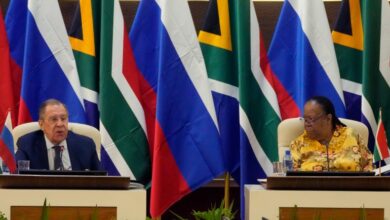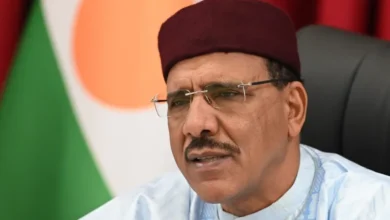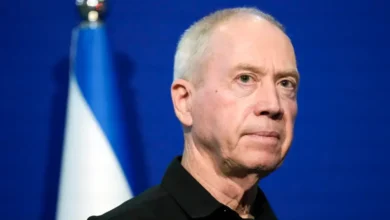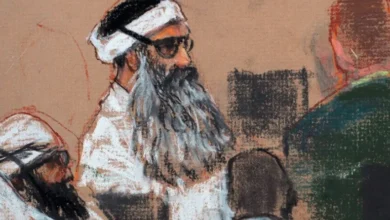Can Jacob Zuma and his MK party unseat the ANC in South Africa’s election?
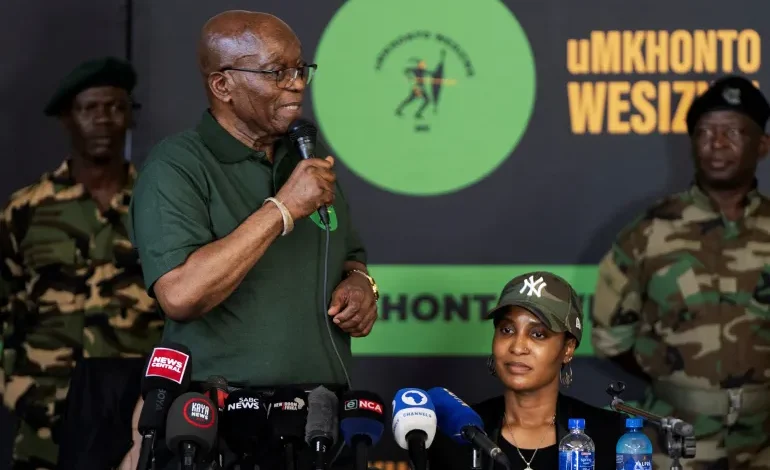
“We need change and we need change now,” said Princess Nozwe Zulu, sitting in her home in a low-income government housing project in Savannah Park, 18km west of the South African port city of Durban.
“Black people cannot be slaves in their own country forever … that’s why we are voting for the uMkhonto weSizwe (MK) party to drive that change,” the 51-year-old said, declaring her support for the new wildcard political party recently endorsed by controversial former President Jacob Zuma.
Zulu is not just an ordinary voter, but also a lifelong activist who was a municipal councillor for the ruling African National Congress (ANC) between 2011 and 2016.
But in the past few months, she has changed sides, now dedicating her time and resources to wooing would-be voters in KwaZulu-Natal (KZN), Zuma’s home province, to cast their ballots for the MK, which means Spear of the Nation.
“I had been warning my comrades in the ANC that if we continue with arrogance, corruption and lack of accountability, we will lose popular support,” she said. “They did not listen, and look, that is exactly what is happening now.”
South Africans go to the polls on May 29 in a crucial election for the ANC, which has been in power since the country’s first post-apartheid elections 30 years ago. Considered the party that liberated South Africa from apartheid, the ANC has recently been shedding support, with polls predicting it could fall below 50 percent vote share for the first time. If it fails to win a majority, opposition parties could pool together to dethrone the ANC.
The MK’s rapid rise since its birth last year could, in particular, damage the ANC in KZN, South Africa’s second most populous province, where polls suggest the Zuma-backed party could emerge as the single biggest winner in the coming election.
Tapping into Zuma’s popularity
Formed in early 2023, the MK came into prominence in December when Zuma announced he would back them instead of the ANC – the party through which he twice became president.
The MK is now tapping into Zuma’s popularity to win more supporters, while also benefitting from resentments among an electorate fed-up with government corruption, high levels of violent crime, electricity blackouts known locally as load-shedding, growing scarcity of piped water, unemployment and poverty under 30 years of ANC rule.
In turning away from the ANC, Zuma said his conscience could not allow him to vote for a party that had become “sell-outs”, and that he would ensure the MK gained enough support to win and change the country’s constitution for the benefit of the struggling Black majority.
South Africa’s constitution is considered one of the most progressive in the world and is among the most cited by top global courts. However, Zuma and the MK argue it was informed by Western laws and is unrepresentative of the people.
“We need to relook at our constitution because it does not benefit us as Blacks,” Zulu told Al Jazeera, echoing the view that the constitution has made it difficult for many Black South Africans to uplift themselves after colonialism, apartheid and racial economic suppression.
Zuma is an enigmatic political figure with a huge following among the Zulu community, South Africa’s largest ethnic group to which he belongs.
His popularity persists even though his road to political power has been paved with countless controversies. He was fired from his position as the country’s deputy president in 2005 after his close associate was found guilty of corruption for, among other things, paying bribes to Zuma. In the same year he was indicted on a charge of rape, but was later acquitted. Also in 2005, he was indicted on charges of fraud, corruption and money laundering.
Despite these travails, Zuma still managed to get elected ANC leader in 2007 and South Africa’s president in 2009 and 2014.
While in power, he was again implicated by corruption allegations and accusations related to the plundering of state funds. And after he was forced out in 2018, he refused to participate in a commission of inquiry into corruption, even after summons were served.
He was sentenced to 15 months in jail and when police fetched him from his home in July 2021, some parts of South Africa erupted into a week-long frenzy of violence and looting, resulting in the deaths of more than 350 people and huge loss to the economy.
Nine wasted years
Detractors see Zuma’s time in power as “nine wasted years” where the economy tanked and fraud and corruption became endemic.
But he is back in the political limelight with the MK, despite South Africa’s electoral commission announcing last month that he was not eligible to stand for elections due to the contempt of court conviction – a ruling the MK has since appealed.
Despite his many critics, those who support Zuma are often happy to follow the former president’s lead.
Zulu, for one, said she took her cue from Zuma and abandoned the ANC when he announced he would back the MK. She is now firmly entrenched in the new party.
But she says she was disillusioned with the ANC even before that, calling out corruption and the lack of benefits for Black South Africans.
